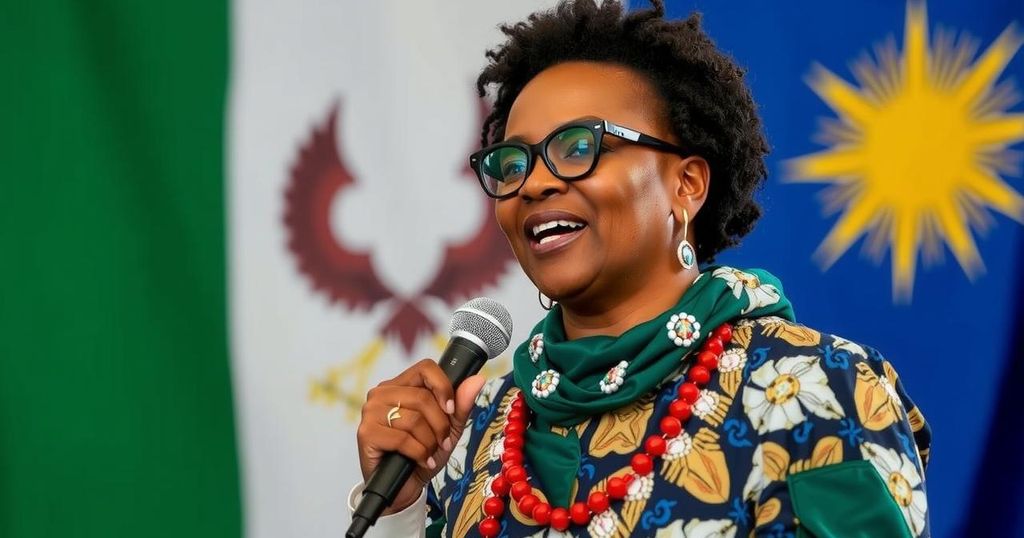Namibia Elects Its First Female President Amid Controversial Elections

Namibia has elected its first female president, Netumbo Nandi-Ndaitwah, who secured 57% of the vote, amidst claims of electoral irregularities. Despite opposition criticisms, SWAPO retains power and Nandi-Ndaitwah’s historic election follows the death of President Hage Geingob earlier this year.
Namibia has made history by electing its first female leader, with Vice President Netumbo Nandi-Ndaitwah securing victory in last week’s presidential election. The announcement of her win followed a challenging election process, during which technical issues, including ballot shortages, prompted the electoral commission to extend voting into a third day. Nandi-Ndaitwah, representing the ruling SWAPO party, garnered 57% of the votes, overcoming predictions of a possible runoff. Her party continues to maintain its decades-long grip on authority since Namibia’s independence in 1990.
The election results, however, have sparked controversy. Several opposition parties, claiming widespread irregularities and a lack of access to voting for many citizens, have vowed to contest the election outcomes in court. Prominent opposition candidate Panduleni Itula of the Independent Patriots for Change received 25% of the vote and raised concerns regarding the legality of the voting extension.
Notably, Nandi-Ndaitwah has a significant political legacy, having been involved in the struggle for independence during the 1970s. Following the passing of President Hage Geingob earlier this year, she was appointed vice president and now ascends to the presidency, marking a significant milestone for gender representation in Namibian politics. The SWAPO party’s retention of parliamentary majority further cements its longstanding position in Namibian governance, contrasting sharply with recent shifts in political power seen in neighboring countries.
The election of Netumbo Nandi-Ndaitwah as Namibia’s first female leader represents a pivotal moment in the country’s political landscape. Namibia, located in southwestern Africa, has been governed by the SWAPO party since gaining independence from South Africa in 1990. Despite a legacy of stable governance, opposition parties have questioned the integrity of the electoral process, particularly in light of technical issues that complicated the conduct of the presidential election. Nandi-Ndaitwah’s ascent to the presidency follows the abrupt passing of her predecessor, highlighting the ongoing significance of political continuity within the SWAPO party. Her election is viewed within the broader context of women’s representation in African politics, as she becomes only the fifth president of Namibia since its independence.
In summary, Namibia’s election of its first female leader, Vice President Netumbo Nandi-Ndaitwah, marks a historic achievement in the nation’s political history. While her victory illustrates the enduring strength of the SWAPO party, it is overshadowed by allegations of electoral irregularities raised by opposition parties. As Nandi-Ndaitwah prepares to take office amidst these challenges, the political climate within the country and responses from the opposition will significantly influence Namibia’s democratic trajectory moving forward.
Original Source: abcnews.go.com






